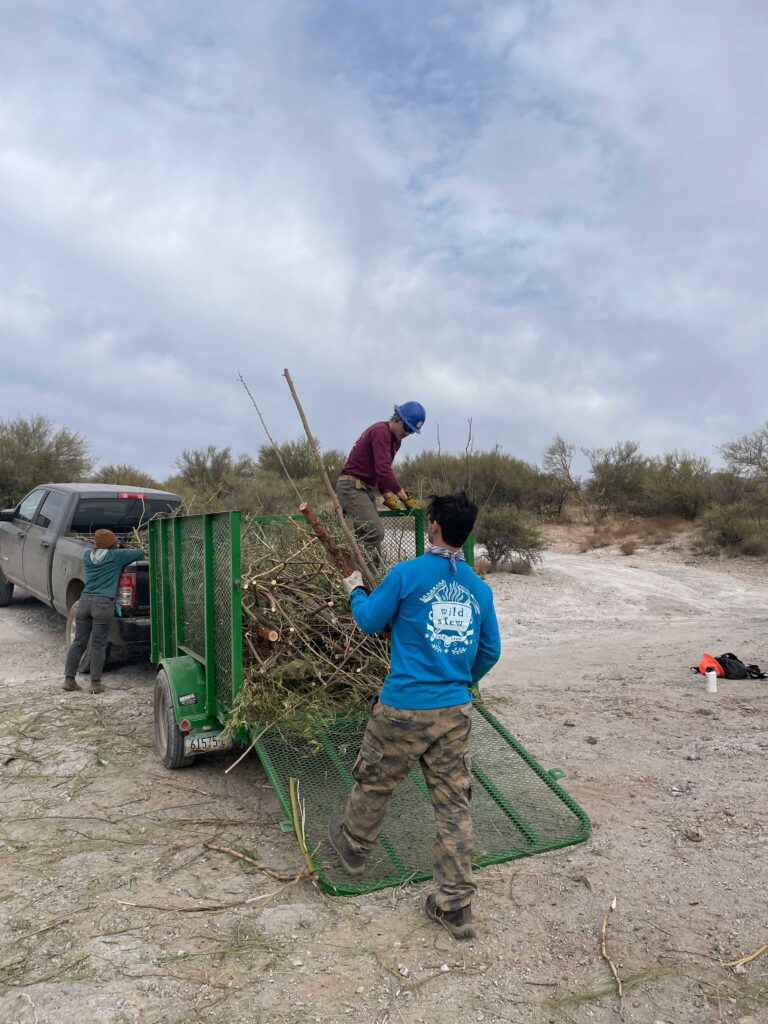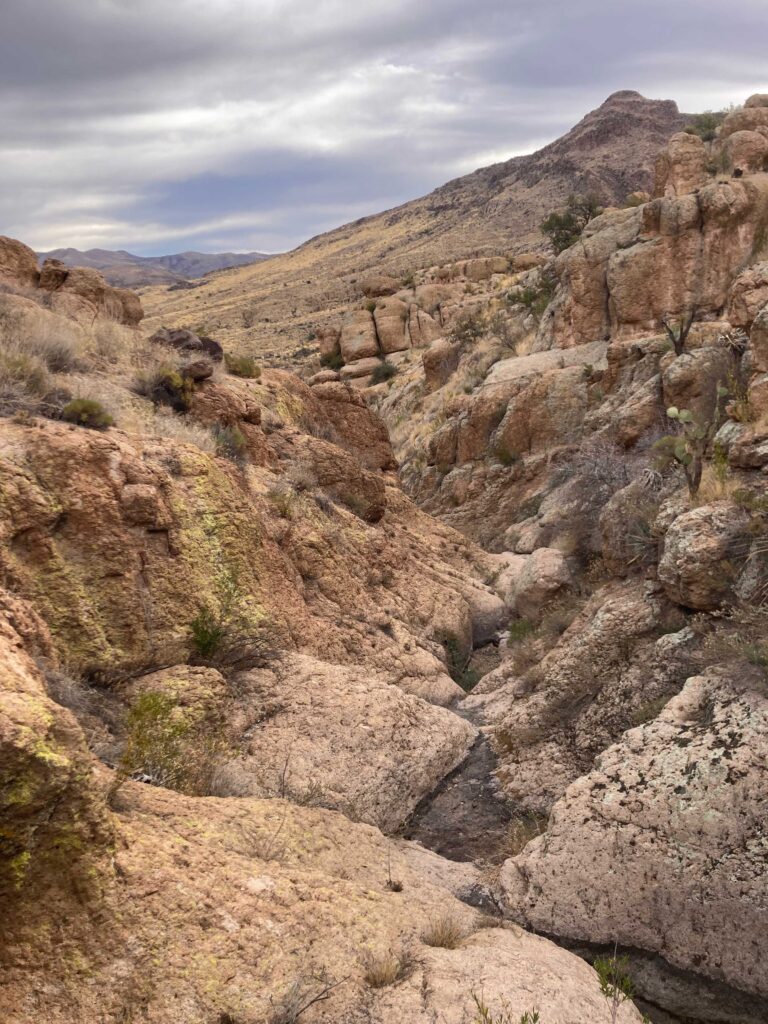
Written by Clay Ridgely, Wild Stew Field Crew Member.
For our first hitch of the new year, the Wild Stew Field Crew headed back to Queen Creek just outside of Superior Arizona to continue a project that we’ve been working on for nearly a year, one drainage over from Arnett Creek where we’ve been working since 2016!
Our main focus for this hitch was to continue initial treatment on a number of invasive species including tamarisk, Mexican palo verde, african sumac, and canary island date palm. We spent our days cutting non-native trees with chainsaws and applying herbicide to prevent further growth.

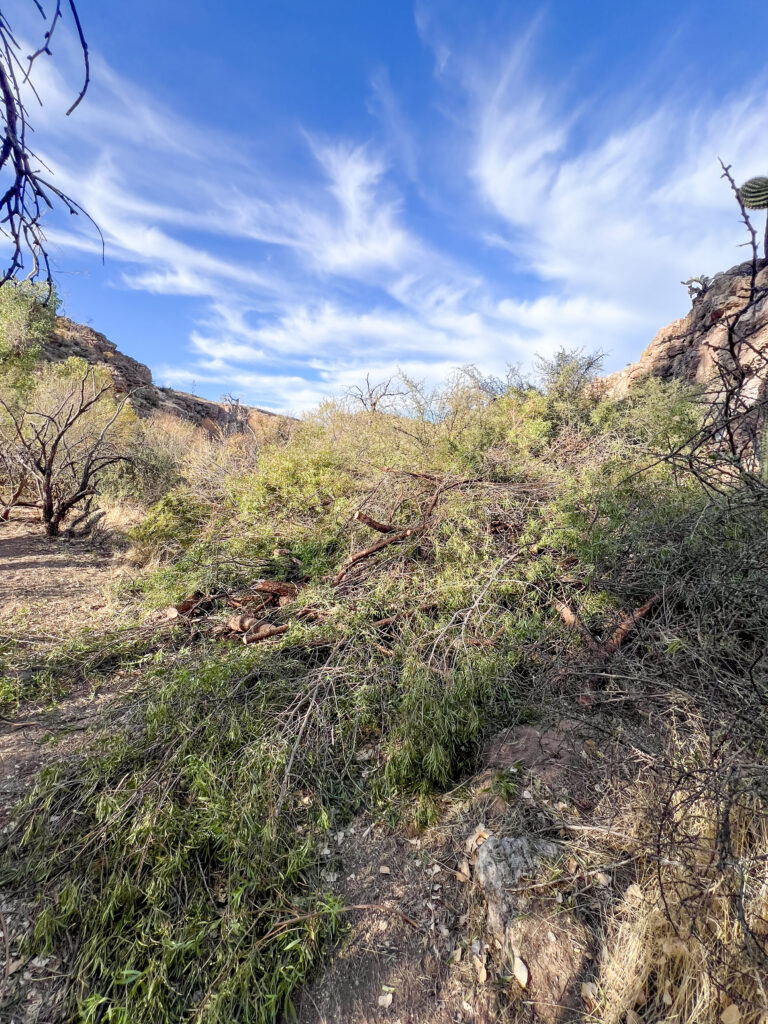
As the hitch went on, we began dragging out the downed trees from the riparian corridor to later get hauled to the dump, both to reduce fuel density in the riparian, and just to get the invasive biomass removed to free up more space for native vegetation to grow in its place. This took most of the hitch as we were averaging around ten miles of hiking back and forth up and down the creek hauling slash each day.
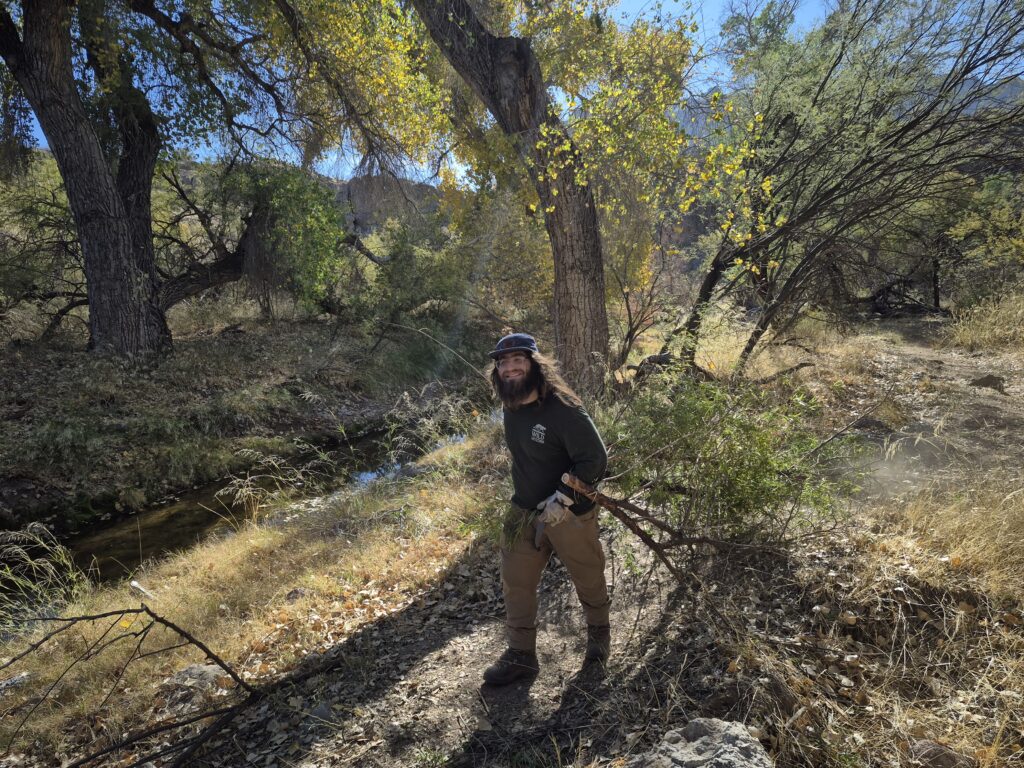
About half way through the week we took a break from moving slash to focus on removing a few canary island date palms. In one day, we cut and removed seven date palms—not bad considering it took most of a day to cut just one on a previous hitch! After that break, we continued to remove all the remaining cut vegetation from the creek and spent two days taking trailer loads to the dump.
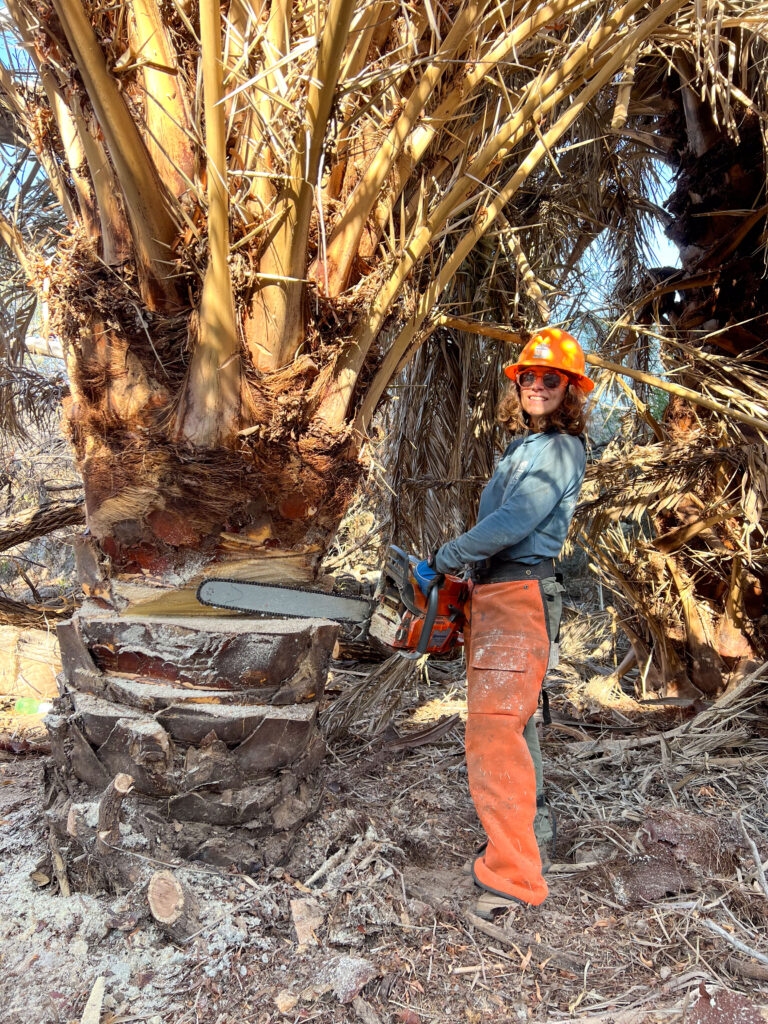
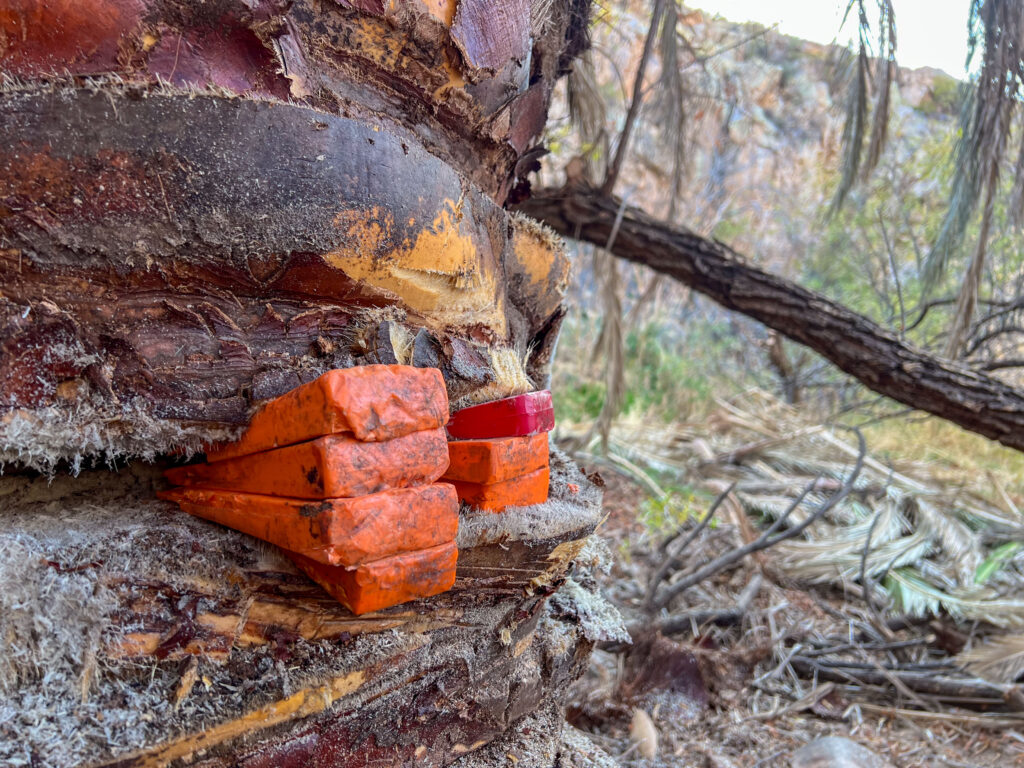
During this latter half of the hitch, a few crew members split off from the rest to scout other locations in the area looking for the more invasive plants upstream of current project areas. In addition to checking back on previously treated sites to see if any regrowth was taking place, we looked down multiple side canyons to see if they too were infected. Fortunately, no woody invasives were found on these scouting trips, which gives some reassurance that the spread of these species had not gone further than previously thought.
